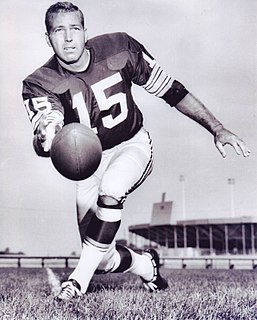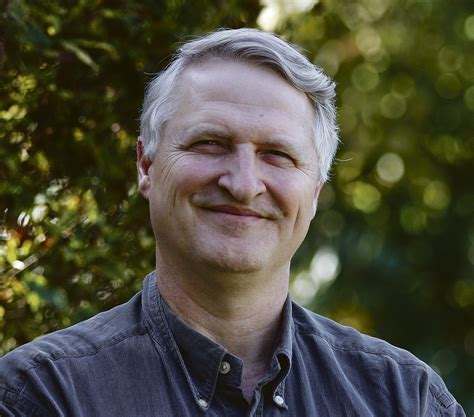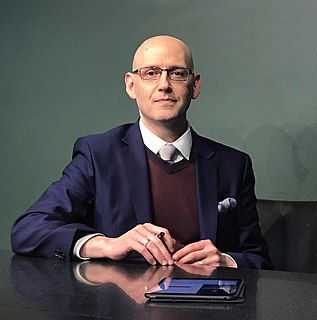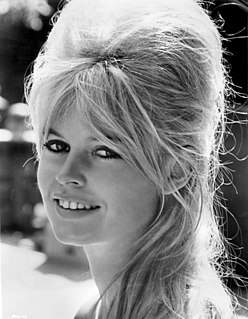A Quote by Bart Starr
We, all of us, could do a much better job of evoking what someone has called the universal principle of human altruism: the urge in us all to help others who are in danger.
Related Quotes
One of the fundamental demonstrations of our natural instinct to Bond with each other is a will to give. Rather than domination, our most basic urge is to reach out to another human being, even at a cost to ourselves. Giving to others-the urge to empathize, to be compassionate, and to help others altruistically-is not the exception to the rule, but our natural state of being. Our impulse to connect with each other has developed an automatic desire to do for others, even at personal cost. Altruism comes naturally to us. It is selfishness that is culturally conditioned and a sign of pathology.
The scriptures are basically a narrative of God's interaction with human kind. If we lose this notion of God's desire for relationship with human beings, we're in danger of losing the heart of the Christian faith. Doctrines, of course, will flow from that, but when the scriptures call us to Believe, we're being called to put our trust in Someone, not just agree with a bunch of doctrine. Demons could do that. We are to commit ourselves to Christ.
Now let us regard the idea of God from the magic standpoint, according to the four elements, the so-called tetragrammaton, the unspeakable, the supreme: the fiery principle involves the almightiness and the omnipotence, the airy principle owns the wisdom, purity and clarity, from which aspect proceeds the universal lawfulness. Love and eternal life are attributed to the watery principle, and omnipresence, immortality and consequently eternity belong to the earth principle. These four aspects together represent the supreme Godhead.
The United States was founded on the idea that all people are endowed with inalienable rights, and that principle has allowed us to work to perfect our union at home while standing as a beacon of hope to the world. Today, that principle is embodied in agreements Americans helped forge - the Universal Declaration of Human Rights, the Geneva Conventions, and treaties against torture and genocide - and it unites us with people from every country and culture.
Human cruelty knows no limits and that one needs immense courage and a will of iron to help others understand that animals are made of flesh and blood like us, that they suffer the same pains as us, that they deserve the same respect as us and that their continuous slaughter should not be part of human entertainment.
It is an odd fact of evolution that we are the only species on Earth capable of creating science and philosophy. There easily could have been another species with some scientific talent, say that of the average human ten-year-old, but not as much as adult humans have; or one that is better than us at physics but worse at biology; or one that is better than us at everything. If there were such creatures all around us, I think we would be more willing to concede that human scientific intelligence might be limited in certain respects.
True compassion is not just an emotional response, but a firm commitment founded on reason. Therefore, a truly compassionate attitude toward others does not change, even if they behave negatively. Through universal altruism, you develop a feeling of responsibility for others: the wish to help them actively overcome their problems.
I call this the Fundamental Problem of Political Economy. How do we limit the power that idiots have over us? ... [Milton] Friedmans insight is that a market limits the power that others have over us; conversely, limiting the power that others have over us allows us to have markets. Friedman argued that no matter how wise the officials of government may be, market competition does a better job of protecting us from idiots.
At one time or another the more fortunate among us make three startling discoveries. Discovery number one: Each one of us has, in varying degree, the power to make others feel better or worse. Discovery two: Making others feel better is much more fun than making them feel worse. Discovery three: Making others feel better generally makes us feel better.
Let us admit that most of us writers feel an essential aversion to politics. By taking such a position, however, we accept the perverted principle of specialization, according to which some are paid to write about the horrors of the world and human responsibility and others to deal with those horrors and bear the human responsibility for them.






































